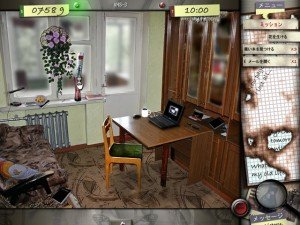 To really learn a language it is important to try to really immerse yourself. When, I first started studying Japanese I didn’t really immerse myself. I actually treated it more like any other subject at school. I did my homework. I read books and took some notes here and there, but that was about it.
To really learn a language it is important to try to really immerse yourself. When, I first started studying Japanese I didn’t really immerse myself. I actually treated it more like any other subject at school. I did my homework. I read books and took some notes here and there, but that was about it.
Language is one thing that you can literally surround yourself with. You can’t really do that with say, history. You’ll be hard pressed to find a bunch of songs about historic moments or that many TV shows about anything but the most famous moments in history and even those aren’t always historically accurate.
So, if you think about it that way, you are pretty lucky to be studying something that has so much material at your disposal to use. You can expose yourself to Japanese all the time if you’d like to. There are songs, movies, novels, and yes, even video games.
I talked about video games a little bit before with my look into Civilization 5 and learning Japanese through video games about a year ago. This time I took a look at some other types of games that might be a little more accessible to those who aren’t in Japan and have a slightly tighter budget.
Japanese Casual Games
Ok, so what is a ‘casual’ game? Well, remember those old-timey games where you had to solve some kind of mystery by collecting objects and using them to solve puzzles. Think about Myst, that classic really beautiful game that everyone went nuts for long ago in a galaxy far far away. If you have no idea what I’m talking about, you were born too late and unfortunately missed out on an interesting time in computer gaming.
Anyway, if you do remember those types of games, try and imagine them being made with a slightly cheaper budget and not a lot of imaginative writing. Can you imagine that? Those are a new genre of games called casual games. They are mostly designed for those non-hardcore gamers among us.
Casual games tend to involve a lot of stories about some kind of mystery or haunted house. They are sometimes set in far off mystical places or in every day locations. They also might involve some minor horror elements like a murderer on the loose. They also involve a lot of puzzles like hidden objects or simple little locks to unlock.
Why they can Be Useful for Learning Japanese
I found them to be pretty useful because in the hidden object games they have a list of items that you must find by clicking on them in the picture. This is great for visual learners because it provides visual feedback. Clicking on the right item crosses it off on your list.
In addition to the find the object games, there are numerous mini games that you have to play. These usually include some kind of instructions that you must follow as well as some feedback when you do the right thing or the wrong thing. In other words, you have to understand the language being used in order for you to advance on to the next scene.
The other cool thing about a lot of these games is that there are English versions available for them to that you can play before or after you play the Japanese version. This way you can either preview or check your language skills while playing the game.
Why they might not Be So Useful for Learning Japanese
Sometimes the objects in the hidden object sequences are really obscure or simply katakana words. This can be avoided of course by choosing games that have more every day scenarios. The mystery set in 18th century France might not have that much useful vocabulary in it. However, a murder mystery set in modern day New York City might have a lot of useful and fun vocabulary.
The language used in the game is best suited for N3 and N2 learners. Those studying N1 might not get that much of a benefit out of it other than some review and reading skills. If you are N5 or N4 level, I still think you should try it, but try to pick up the English version of the game first than play the Japanese version that way you will at least have context and a general idea of what is going on in the game.
How to Get Started
The place that I went to test out some games is BigFishGames.jp. They are pretty much the biggest distributor of casual games on the net. I believe they have literally thousands of games to choose from. I would recommend アイテム探し games. These are called hidden object games in English and are essentially simple adventure games.
I personally tried out ‘Lost in the City‘. As you can see in the short clip below the graphics aren’t state of the art, but it does have a lot of Japanese for you to read especially when they introduce the new chapters. Overall, the writing was pretty easy to understand, I didn’t need to look up any words. Those at lower levels should be able to follow the story pretty easily as well. It isn’t exactly Sherlock Holmes or anything.
My guess is that because these games have usually been translated from English they contain simpler writing in them. This doesn’t exactly mean it is super easy, but I didn’t encounter too much slang or other difficult language.
It doesn’t hurt to try out the games, you get the first hour for free, so you could try out a few of the games and see what you think. Another thing to keep in mind is that you can usually play the Japanese version of the game for an hour, and then play the English game for an hour as well. It doesn’t always work out that way though, so you might want to play 30 minutes and then switch and download the other version and see if they are two separate games.
If you do decide to buy a game, they usually have specials every day, or they sometimes have first time buyer deals, so look around for coupons on their site. Also, be aware that they will automatically sign you up for the Big Fish Game Club. This basically sets you up so that for Y998/month they will give you one game credit a month to download a game with. It will essentially give you a 33% discount on games if you want to get a new one every month. If you don’t want to sign up for that be sure to UN-CHECK the box during checkout.
If you have trouble navigating the site in Japanese, you can use Google Translate to make your way around the site in English. It won’t translate the graphics, but it should translate enough for you to figure out what you are doing. If there is a particular game that looks interesting you can also probably just search for it on their English site and read more about it there.
Give it a Try
What do you think of these casual games? Boring? Too difficult? Just right? Let me know in the comments below.











Thanks Mac
必ず見てみます。。。^^